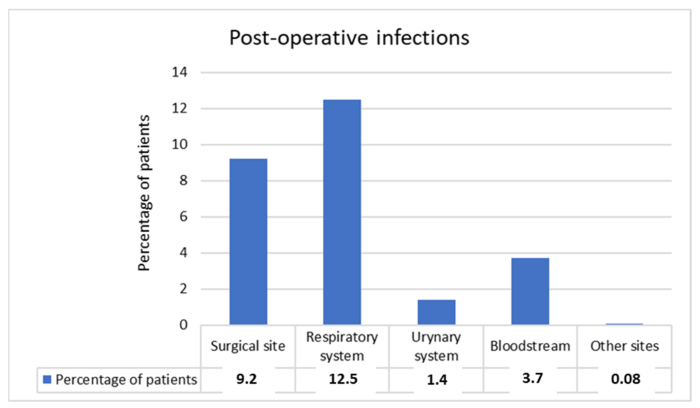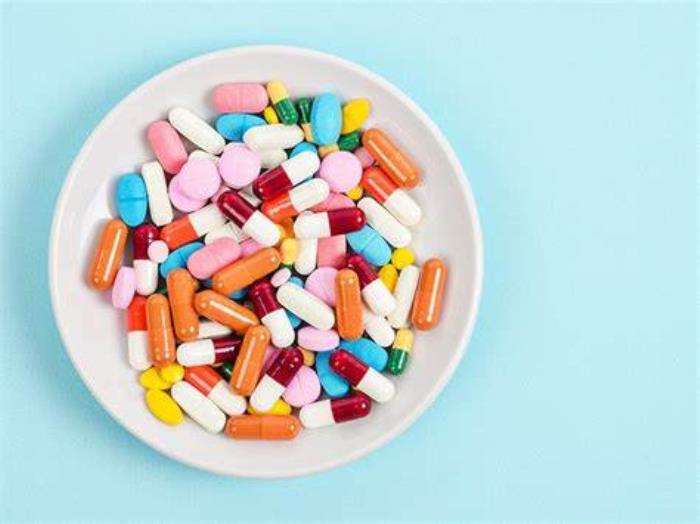Preventing infections is a cornerstone of successful Automated Implantable Cardioverter Defibrillator (AICD) surgery. Post-surgical infections can severely impact the device's performance, lead to life-threatening complications, and often require additional medical or surgical intervention. Implementing effective infection prevention measures not only safeguards patient health but also enhances long-term device functionality and reduces the financial and emotional burden associated with treatment failures.
Medical disclaimer: This content is for general awareness and does not replace a doctor’s consultation. For diagnosis or treatment decisions, consult a qualified specialist.
Common Causes of Infections After AICD Implantation
Infections following AICD implantation typically arise from bacterial contamination, either during the surgical procedure or due to inadequate wound care afterward. The most common culprits include Staphylococcus aureus and Staphylococcus epidermidis, which are known for their ability to colonize surgical wounds and foreign devices. Factors such as skin flora, breaches in sterile technique, or improper postoperative care can contribute to these infections.
Risk Factors for Post-Surgical Infections
Certain predisposing factors significantly increase the risk of infections after AICD implantation. These include underlying health conditions such as diabetes, obesity, and compromised immunity, as well as prolonged surgical duration, device revisions, or a history of prior infections. Recognizing and addressing these factors before surgery plays a crucial role in minimizing the likelihood of complications.

Signs and Symptoms of Infection After AICD Surgery
Early detection of infections is critical for timely intervention. Common symptoms include redness, warmth, swelling, or persistent pain at the surgical site. Systemic signs like fever, chills, or general fatigue may indicate a more severe infection, such as endocarditis or sepsis. In cases of deeper infections, patients might notice purulent discharge or tenderness around the implanted device, warranting immediate medical attention.
Types of Infections Associated with AICD Implants
Post-surgical infections vary in severity, ranging from superficial wound infections to more complex issues such as pocket infections around the implanted device. In severe cases, systemic infections like bacteremia or device-related endocarditis can occur, requiring aggressive treatment. For advanced infections, complete device removal and subsequent reimplantation are often necessary to restore patient health.
How Surgical Techniques Reduce Infection Risk
Modern surgical advancements play a vital role in reducing infection risks during AICD implantation. Techniques such as making smaller incisions, minimizing tissue dissection, and reducing operative times help limit exposure to pathogens. Careful handling of the device and surrounding tissues further decreases the chances of bacterial contamination, improving overall surgical outcomes.
Role of Sterile Practices in Preventing Infections
Strict adherence to sterile practices remains the most effective defense against infections. These include meticulous hand hygiene, proper sterilization of surgical instruments, and the use of prophylactic antibiotics. Maintaining a sterile environment during surgery and enforcing stringent postoperative care protocols significantly lower infection rates and promote faster recovery. Together, these practices ensure patient safety and long-term success of AICD procedures.
Importance of Proper Wound Care Post-Surgery
Proper wound care is a cornerstone of infection prevention after AICD (Automated Implantable Cardioverter Defibrillator) surgery. Keeping the surgical site clean, dry, and protected minimizes the risk of bacterial contamination. Patients should follow their surgeon's instructions, including dressing changes and monitoring for signs of infection such as redness, swelling, or discharge.
Antibiotic Prophylaxis: When and Why It’s Used
Antibiotic prophylaxis is commonly administered before and during AICD surgery to prevent bacterial infections. This practice is particularly important for patients with higher risk factors, such as diabetes or a compromised immune system. The goal is to reduce the risk of bacteria colonizing the device or surgical site during and immediately after the procedure.

The Role of the Immune System in Infection Prevention
A healthy immune system plays a critical role in fighting off infections after AICD surgery. Factors such as adequate nutrition, sufficient rest, and stress management help bolster immune defenses. Patients with weakened immunity due to conditions like chronic illnesses should discuss personalized infection prevention strategies with their healthcare team.
Managing Pre-Existing Conditions to Lower Infection Risk
Pre-existing conditions such as diabetes, obesity, or autoimmune disorders can increase the likelihood of post-surgical infections. Proper management of these conditions before and after AICD surgery—through blood sugar control, weight management, and medication adherence—is crucial to reducing infection risks.
Infection Risks for Patients with Diabetes or Chronic Illnesses
Patients with diabetes or chronic illnesses face a heightened risk of infection due to impaired wound healing and reduced immune response. Specialized care, including tighter glucose monitoring and wound care supervision, is essential for these individuals to minimize complications and ensure a smooth recovery.
How to Recognize Device-Related Infections
Device-related infections may present with localized symptoms like pain, redness, or swelling at the implantation site, as well as systemic signs like fever or chills. Prompt identification and treatment of such infections are critical to prevent complications, including damage to the AICD device or the need for device removal.
When to Seek Medical Attention for Infection Symptoms
Patients should seek immediate medical attention if they experience symptoms like persistent fever, excessive wound discharge, or increased pain at the implantation site. Early intervention is key to addressing infections effectively and preventing their spread to surrounding tissues or the bloodstream.
Treating Infections After AICD Surgery: What to Expect
Treatment for post-surgical infections typically involves antibiotics and, in severe cases, surgical intervention to clean the site or replace the device. Depending on the infection's severity, hospitalization may be required for intravenous antibiotics and monitoring.
The Impact of Infections on AICD Device Function
Infections can compromise the functionality of the AICD device by damaging its components or interfering with its electrical connections. In severe cases, an infected device may need to be removed, necessitating a replacement procedure once the infection has resolved.
Strategies for Minimizing Infection Risk Long-Term
Long-term infection prevention strategies include maintaining good hygiene, attending regular follow-up appointments, and promptly addressing any skin issues near the implantation site. Patients should also avoid activities that could expose the surgical site to trauma or contamination.
Patient Education: Ensuring Adherence to Post-Surgical Guidelines
Educating patients about proper post-surgical care is vital for preventing infections. This includes guidance on wound care, recognizing infection symptoms, and adhering to antibiotic regimens. Clear instructions and regular communication with healthcare providers empower patients to take an active role in their recovery.
Advances in AICD Design to Reduce Infection Risks
Modern AICD devices incorporate features aimed at minimizing infection risks, such as antimicrobial coatings and smaller, less invasive designs. These advancements, combined with improved surgical techniques, have significantly reduced the incidence of post-implantation infections.
Role of Medications Alongside AICD Therapy
Explore how medications complement AICD therapy in managing heart rhythm disorders. While an Automated Implantable Cardioverter Defibrillator (AICD) helps regulate abnormal heart rhythms, medications can assist in controlling symptoms and improving overall heart function. This article discusses the integration of pharmacological treatments with AICD therapy for optimal heart health.
Monitoring Battery Life and Replacing AICD Devices
Learn about how to monitor and replace AICD batteries. Regular check-ups are crucial for ensuring that the AICD device continues to function properly. This article explains the signs that indicate the need for a battery replacement and the procedure involved in ensuring that your AICD remains effective in preventing sudden cardiac arrest.
Conclusion: Staying Vigilant Against Post-AICD Infections
Preventing infections after AICD surgery requires a combination of proper wound care, patient education, and proactive management of risk factors. With advances in device design and surgical techniques, coupled with vigilant post-operative care, the risk of infection can be effectively minimized, ensuring better outcomes for patients.
Best AICD Implantation in India
The Best AICD Implantation in India involves placing a small device to monitor heart rhythms and deliver lifesaving shocks if dangerous arrhythmias are detected, ensuring enhanced heart safety for high-risk patients.
Best Aicd Implantation Hospitals in India
The best aicd implantation hospitals in india are equipped with cutting-edge technology and skilled cardiology teams, providing comprehensive care and expertise in cardiac rhythm management.
AICD Implantation Cost in India
The aicd implantation cost in india is competitively priced, making advanced cardiac care accessible with transparent and affordable treatment options.
Best AICD Surgeons in India
The Best AICD Surgeons in India are highly skilled in cardiac device implantation, providing personalized care to help patients manage serious heart conditions effectively.
FAQ
What are the most common infections after AICD surgery?
The most common infections include surgical site infections and device-related infections, which may involve the surrounding tissues or the AICD device itself.
How can patients reduce their risk of infection post-surgery?
Patients can reduce infection risks by maintaining proper wound hygiene, attending follow-up appointments, and adhering to their healthcare provider's post-surgical instructions.
What happens if an AICD device becomes infected?
If an AICD device becomes infected, treatment may involve antibiotics or, in severe cases, device removal and replacement after the infection is resolved.
Are certain patients more prone to infections after AICD implantation?
Yes, patients with conditions such as diabetes, obesity, or weakened immune systems are at higher risk for post-surgical infections.
How long after surgery can infections occur?
Infections can occur shortly after surgery or even months later. Patients should remain vigilant and report any signs of infection to their healthcare provider immediately.
Explore the Best Heart Care Resources in India
Find some of the top cardiologist, surgeons and the best heart hospitals in India
Best Heart Hospitals in India
Choosing the right hospital is crucial for successful heart treatments. If you want to explore trusted options, check the list of Best Heart Hospitals in India offering world-class facilities, advanced cardiac care units, and experienced teams for both simple and complex procedures.
Best Cardiologists in India
Finding the right cardiologist can make a huge difference in early diagnosis and long-term heart health. If you are looking for the Best Cardiologists in India, see this curated list of experts who specialize in preventive care, interventional cardiology, and complex heart disease management. Check the full list Best Cardiologists in India.
Best Cardiac Surgeons in India
If you are planning for heart surgery and need top-level expertise, we recommend exploring the Best Cardiac Surgeons in India. These surgeons have a proven record in performing bypass surgeries, valve replacements, and minimally invasive heart operations with excellent outcomes.
Get more indepth information on Cardiology treatments and their costs.
Conclusion
Your cardiology health deserve the best care. Explore the links above to learn more about the top cardiac hospitals and cardiac surgeons in India.
Recent advancements in minimally invasive techniques for Automatic Implantable Cardioverter Defibrillator (AICD) implantation have significantly improved patient outcomes. These techniques involve smaller incisions, reducing the risk of infection and speeding up recovery times. Innovations such as leadless AICDs and subcutaneous ICDs have made the procedure less invasive and more comfortable for patients. These advancements are particularly beneficial for elderly patients and those with comorbidities, as they minimize surgical trauma and improve overall safety. Advances in Minimally Invasive Techniques for AICD Implantation
An Automatic Implantable Cardioverter Defibrillator (AICD) is a life-saving device designed to prevent sudden cardiac arrest (SCA) in high-risk patients. The AICD continuously monitors the heart's rhythm and delivers an electrical shock if it detects a dangerous arrhythmia, such as ventricular tachycardia (VT) or ventricular fibrillation (VF), restoring normal heart rhythm. This device is particularly beneficial for patients with a history of heart attacks, reduced left ventricular ejection fraction (LVEF), or those who have survived a previous cardiac arrest. By providing immediate intervention, AICDs significantly improve survival rates and quality of life for these patients. The Role of AICD in Preventing Sudden Cardiac Arrest
Cardiac rehabilitation (CR) is a critical component of recovery after Automated Implantable Cardioverter Defibrillator (AICD) implantation. It involves structured exercise programs, education on heart-healthy living, and counseling to reduce stress. CR helps patients improve their physical fitness, manage symptoms, and reduce the risk of future heart problems. Participation in CR has been linked to better outcomes, including reduced hospitalizations and improved survival rates. The Role of Cardiac Rehabilitation After AICD Implantation